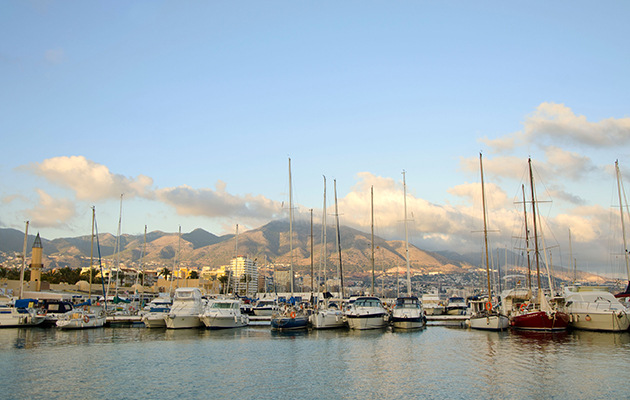James Stevens answers your questions of seamanship - this month, with no working bow thruster what is the best way to get into a windward berth?
Question
Mike is a professional delivery skipper and a commercially endorsed Ocean Yachtmaster.
His current job is to deliver a Beneteau Oceanis 38 along with two crew from the Solent to Fuengirola in Southern Spain. It’s been a pretty uneventful passage but as they sail along the Spanish coast the offshore wind has freshened.
By the time they are outside Fuengirola marina it’s blowing 30 to 35 knots straight from the mountains.
The Oceanis is a comfortable boat, spacious and pleasant on board and complete with fold-down bathing platform at the stern.

A hammerhead pontoon is normally an easy option, unless it’s a strong offshore wind. Credit: Alamy
The yacht is easy to handle in normal conditions and Mike is an experienced and confident boat handler.
However, in this wind the high topsides mean that as soon as he slows down the bow immediately gets blown off the wind.
To add to the problem, somewhere on the delivery the bow thruster stopped working.
The mooring he has been allocated is a hammerhead pontoon which involves coming alongside with the wind abeam blowing the yacht off with yachts moored ahead and behind.
On the first attempt as he slows down a gust blows the bow off.
On the second attempt he has a bowman ready to lasso the cleat but throwing a bight of warp to windward proves impossible and the bow soon blows off again.
Mike is very conscious that he has to deliver the boat without a scratch. How is he going to get alongside?
Answer
A modern yacht with spacious accommodation and high topsides is challenging to manoeuvre in high winds.

James Stevens, author of the Yachtmaster Handbook, spent 10 of his 23 years at the RYA as Training Manager and Yachtmaster Chief Examiner
They are at their most stable going astern with the bow being blown downwind and the prop pulling the stern to windward. His best chance therefore is to station one of the crew on the bathing platform and motor slowly astern until the crewman can step ashore with the stern line.
Once that’s secure it’s simply a matter of passing other warps ashore, positioning the fenders carefully and winching the bow round until they are alongside.
He could also use some forward power with the wheel over to bring the bow round, but given the wind, he might not get it very far upwind.
It takes a bit of skill to position the stern close enough to step ashore without bumping the bathing platform but it’s safe if taken slowly.
Sometimes it is possible to motor into wind and attach the bow first before springing in, but with such high topsides it is always going to be tricky to lasso the cleat.
The hardest part of this trip turned out to be the last few metres.




